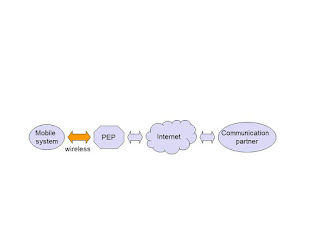Sunday, April 22, 2018
Saturday, April 14, 2018
Assignment II Class: BE (IT) Subject: MC Academic Year 2017-18 Sem II
MGM's College of Engineering, Nanded.
Department of IT
Academic Year 2017-18 Sem II
Assignment II
Class: BE (IT) Subject: MC
1.
A person is
enjoying music on Bluetooth headset, which physical link is used? Why? Explain
the characteristics of this link.
2.
A data is exchanged
between a laptop and smartphone, which physical link is used? Why? Explain the
characteristics of this link.
3.
Define Bluetooth
Piconet and Scatternet. How they are formed?
4.
Draw and explain
the Bluetooth protocol of stack.
5.
Draw and explain
the baseband states of a Bluetooth device.
6.
What are the
components of GSM architecture? Enlist and briefly explain with appropriate
diagram.
7.
Define handover
in GSM networks. A mobile phone user has travelled from Nanded to Delhi for 3
days, which handover will take place and how? How mobile services will be
provided to the user in Delhi and billing is done for the service?
8.
How a SIM card
gets authenticated in GSM networks ?
9.
A GSM operator
is using 890-915 MHz uplink frequency band, (i) how many channels are formed (ii)
Size of each channel (iii) how many TDMA slots per channel are available?
10. What are the different logical channels in GSM?
Explain their functions.
11. Enlist the building blocks of 3G system with their
functions.
12. Draw the UTRAN architecture in 3G.
13. What are the different types of handover in 3G
networks.
14. Compare UMTS and HSDPA.
15. Which are the additional components in LTE
architecture not present in 3G? Why
16. Write short notes on : Characteristics of 4G.
Friday, April 13, 2018
Class: TE (IT) Subject: CN Academic Year 2017-18 Semester II Assignment II
MGM's College of Engineering, Nanded
Department of IT
Academic Year 2017-18 Semester II
Assignment II
Class: TE (IT) Subject: CN
1. Discuss
Subnetting and Supernetting with example.
2.
What
are different types of ICMP Messages? An ICMP message has arrived with the
header (in hexadecimal):
03 0310 20 00 00 00 00
What is the type
of the message? What is the code? What is the purpose of the message?
3.
Compare
(i) TCP with IP (ii) TCP with UDP.
4.
What
are properties of transport layer services? Explain in brief.
5.
Draw
and explain the fields of TCP segment format. What is the maximum size of the
TCP header? What is the minimum size of the TCP header?
6. What
are the different control fields in TCP segment? What can you say about the TCP
segment in which the value of the control field is one of the following:
a. 000000
b. 000001
c. 010001
d. 000100
e. 000010
f.
010010
7.
What
are the different options in TCP segment? If the value of HLEN is 0111, how
many bytes of option are included in the segment?
8. The
following is a dump of a TCP header in hexadecimal format.
(05320017 00000001 00000000
500207FF 00000000)
a. What
is the source port number?
b. What
is the destination port number?
c. What
the sequence number?
d. What
is the acknowledgment number?
e. What
is the length of the header?
9. What is Silly
Window Syndrome? How it is solved in TCP?
10. Draw and explain the format of UDP packet. The following is a dump of a UDP header
in hexadecimal format.
10. Draw and explain the format of UDP packet. The following is a dump of a UDP header
in hexadecimal format.
CB84000D001C001C
a.
What is the source port number?
b. What is the destination port number?
c. What is the total length of the user datagram?
d. What is the length of the data?
b. What is the destination port number?
c. What is the total length of the user datagram?
d. What is the length of the data?
11. Define autonomous system.
Which protocol is used for communication between
autonomous systems?
autonomous systems?
12. Contrast and compare distance vector routing with
link state routing.
13. Draw and explain the fields of RIP message format.
14. Draw and explain the fields OSPF message format.
15. Change the multicast IP address 238.212.24.9 to an Ethernet multicast address.
16. Write short notes on : (a) IGMP (b) DHCP
Faculty Incharge: Hashmi S A
13. Draw and explain the fields of RIP message format.
14. Draw and explain the fields OSPF message format.
15. Change the multicast IP address 238.212.24.9 to an Ethernet multicast address.
16. Write short notes on : (a) IGMP (b) DHCP
Faculty Incharge: Hashmi S A
Subscribe to:
Comments (Atom)



















